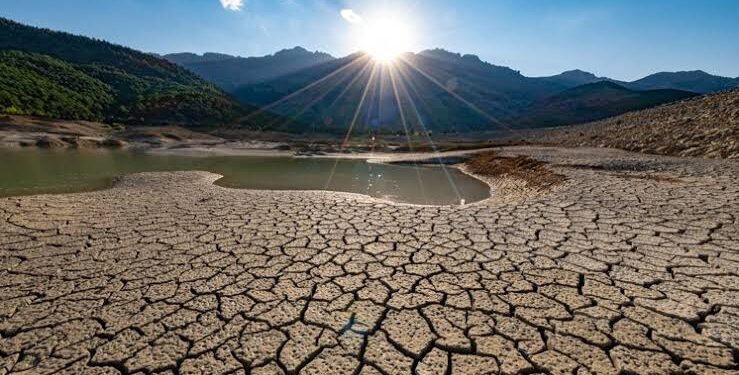By Emmanuel Nduka
Nigeria is set to collaborate with the United Kingdom’s Zander Corporation to revolutionize agricultural practices and restore degraded lands in the country’s most ecologically vulnerable regions.
The partnership aims to combat desertification and preserve wildlife, offering a new hope for the environment and local communities.
Nigeria’s Vice President, Kashim Shettima emphasized the Federal Government’s commitment to afforestation, sustainable land use, and long-term agricultural productivity as vital strategies in addressing desertification and its negative impact on ecosystems.
Speaking at a meeting with Zander Corporation’s leadership, including Lord Raymond Benedict Asquith, the 3rd Earl of Oxford, and Asquith OBE, a member of the UK House of Lords, the vice-president highlighted the crucial link between innovative technology and the transformation of Nigeria’s agricultural and ecological landscape.
“We are fully committed to afforestation and sustainable land use, and we recognize the immense value of partnerships that introduce cutting-edge technologies like those from Zander Corporation,” Shettima remarked.
In line with the collaboration, Zander Corporation has generously donated £250,000 worth of afforestation technology to Nigeria. This includes tools designed to help restore ecosystems, promote sustainable agriculture, and enhance food security in desert-prone regions.
Shettima also suggested expanding the project to include vegetable production and tree crops like cashew, which have high global demand. He expressed confidence that other states like Borno and Katsina would embrace the initiative.
Acknowledging Lord Oxford’s dedication to training Nigerian agronomists, Shettima stressed the vital link between ecology and the economy in Nigeria’s northern regions, where desertification threatens both local livelihoods and wildlife habitats. “Zander’s innovative technology could be the solution we’ve been waiting for,” he said.
Lord Oxford reaffirmed Zander Corporation’s commitment to Nigeria, sharing that the company had been operating in the country for over 12 years and had successfully implemented similar projects in desert regions of the Middle East and North Africa, dramatically reducing irrigation costs and fostering sustainable vegetation in arid environments.
He further revealed plans to manufacture their products locally in Nigeria, which would reduce costs and create jobs, offering an exciting opportunity to transform both the landscape and the economy.
Saleh Abubakar, Director-General of the National Agency for the Great Green Wall (NAGGW), confirmed the agency’s commitment to overseeing the implementation of Zander’s technology. Pilot projects are already underway in Katsina, Borno, and Sokoto States, where five hectares of land have been prepared for deployment.
“We are committed to ensuring that this initiative benefits the communities affected by desertification while preserving the natural environment and local wildlife,” Abubakar said.



































